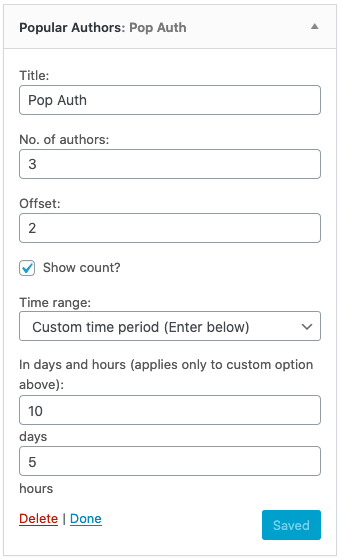Launching Popular Authors WordPress plugin
I’m happy to announce the launch of a new WordPress plugin. Popular Authors is an add-on for Top 10 and allows you to display the top authors on your blog based on the number of views that your posts receive. The plugin uses the number of views that are tracked by Top 10.
This plugin came as a request from an existing user of Top 10 and I noticed that there isn’t a similar free plugin in the WordPress repository – at least not one that has been recently updated!
Popular Authors can be used in three ways:
- Widget: simply drag and drop “Popular Authors” widget into your theme’s sidebar and configure it
- Shortcode
[wzpa_popular_authors], so you can embed it inside a post or a page - Template tag: Use
wzpa_list_popular_authors()to display the popular authors anywhere on your theme
The Widget

The widget is the easiest way to display the top authors – simply drag and drop it into the theme and you’re good to go. Plus you have a few options to play with. I’ll update the widget to add a few more parameters than can be customised.
Shortcode and Template tag
These are perfect if you want to insert the top list into your website at custom places that don’t support the widget. Both the shortcode and the template tag take several optional parameters.
Refer to this article on the shortcode attributes for more details on what attributes you can use with the shortcode. For the template tag, you will pass these as an arguments array.
Future plans
I pushed this out as a simple release with the basic functionality of the shortcode and the widget – both of which use the function to output the data. I’ve got several plans to develop this plugin and you can always track the latest features in Github.
A few immediate features include, adding a support for Co-Author Plus so as to give multiple authors credit for the number of views tracked, adding an option to display the author thumbnail and adding a new tab in the Top 10 settings page to set a few global options.
As always, I’m always happy to get feature requests. You can post them in the support forum or create a Github issue. Please note that Github issues not related to support requests are deleted or closed.



